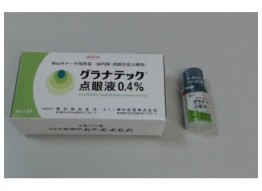Supplements for Stress, Anxiety and Depression
Introduction
In our fast-paced world, feeling stressed, anxious, or even depressed has become all too common. Modern life, with its pressures and expectations, often leaves us grappling with these overwhelming emotions. Luckily, Mother Nature has provided us with some potent remedies to help manage these daunting mental health issues. Yes, you've guessed it—we're talking about Supplements for Stress, Anxiety, and Depression. But, which ones are truly beneficial? And how can they make a difference in your life? Stick around to uncover these hidden treasures and learn how to incorporate them into your wellness journey.
Supplements for Stress, Anxiety and Depression
Over the past few decades, there has been a significant upsurge in the use of natural supplements to counterbalance the impacts of stress, anxiety, and depression. The reasons are manifold—fewer side effects, synergy with the body's natural functions, and often, cost-effectiveness. Let's delve into some of the most effective supplements available.
St. John’s Wort
St. John’s Wort, scientifically known as Hypericum perforatum, is a plant native to Europe and parts of Asia and Africa. It’s one of the most well-studied supplements for depression. Does it work? Indeed! Numerous studies have shown that it can be as effective as standard prescription antidepressants for mild to moderate depression.
Omega-3 Fatty Acids
Omega-3 fatty acids are a type of fat our bodies cannot make, so we must obtain them from our diet. They are crucial for brain health, and research has suggested they can help alleviate symptoms of depression and anxiety. Omega-3 supplements, usually derived from fish oil, are an excellent way to ensure adequate intake.
Magnesium
Magnesium is a crucial mineral that plays a pivotal role in our overall health. It has been shown to have a calming effect on the nervous system and can help manage stress and anxiety. Some studies suggest it may also have a positive effect on depression.

B-Complex Vitamins
B vitamins are crucial for brain health, playing a significant role in producing brain chemicals that affect mood and other brain functions. Low levels of these vitamins, particularly B-12 and folate, have been linked to depression.
Considerations When Choosing Supplements
While supplements can offer a natural way to manage stress, anxiety, and depression, they're not one-size-fits-all solutions. Several factors need to be taken into consideration when selecting the right supplement for you. Let's have a look at what they are.
Consultation with Healthcare Provider
Before starting any new supplement, always consult with a healthcare provider. They can help determine the right dosage, evaluate potential interactions with other medications, and monitor your progress.
Quality of Supplements
Not all supplements are created equal. Look for supplements from reputable manufacturers who use high-quality ingredients, follow good manufacturing practices, and provide transparency about their testing methods.
Individual Needs and Conditions
Every individual is unique, so it's important to consider your specific needs and conditions. What works wonders for one person might not have the same impact on another.
Conclusion
In a nutshell, supplements can be a powerful ally in managing stress, anxiety, and depression. But remember, they are not magic bullets. It's vital to approach them as part of a holistic approach to mental health, encompassing a balanced diet, regular exercise, adequate sleep, and emotional self-care. Remember, the journey to mental wellness is a marathon, not a sprint. With patience, consistency, and the right support, you can conquer stress, anxiety, and depression and lead a happier, healthier life.
FAQ
While supplements can help manage symptoms of stress, anxiety, and depression, they are not a cure. It's important to combine supplementation with other strategies such as therapy, lifestyle changes, and in some cases, prescribed medications.
Just like any medication, supplements can also have side effects. Some common ones include nausea, digestive issues, and headaches. It's crucial to talk to a healthcare provider before starting any new supplement regimen.
The timeline varies from person to person and also depends on the supplement. Some may show results within a few weeks, while others might take several months. Consistency is key.
It's possible to combine multiple supplements, but it's essential to consult a healthcare provider to ensure safety and effectiveness.
Yes, some supplements can interact with certain medications. Always consult your healthcare provider to avoid any potential adverse interactions.
Yes, many of these supplements can also be obtained through diet. Foods like fatty fish, green leafy vegetables, and whole grains are rich sources of many of these beneficial compounds.


